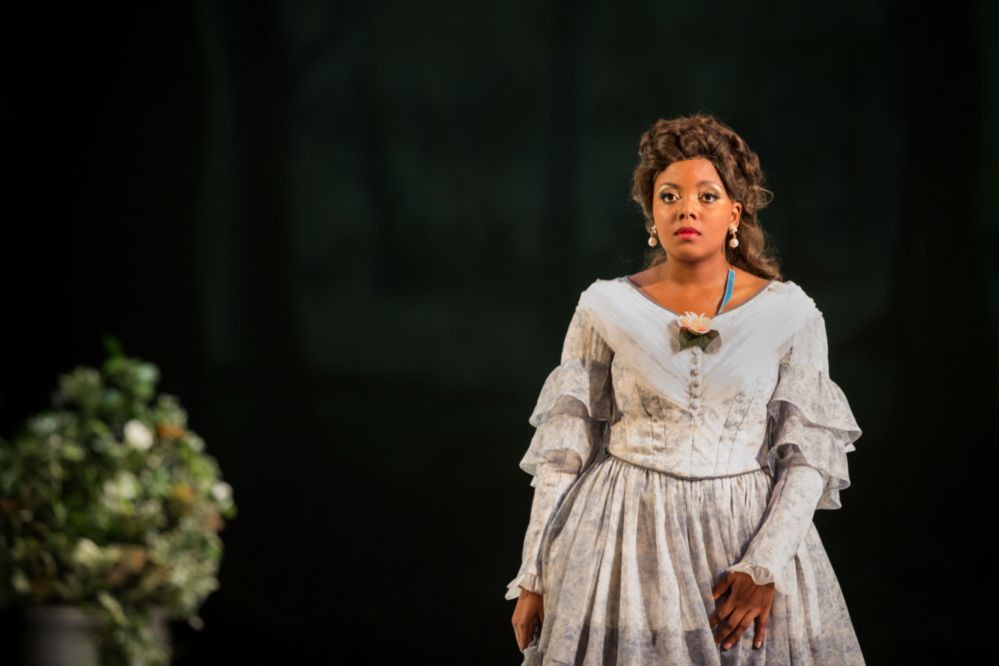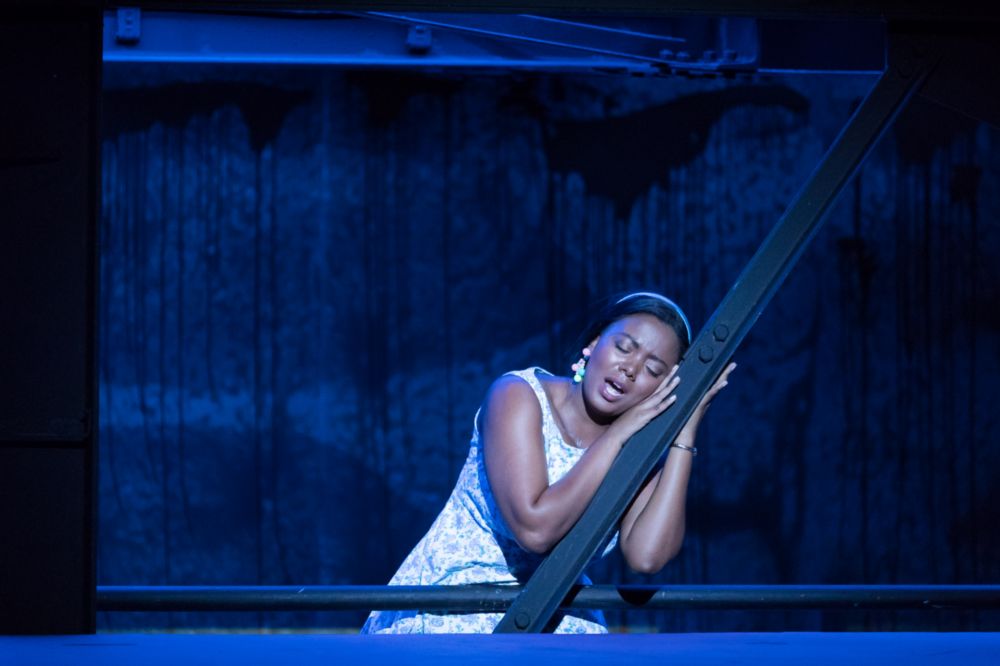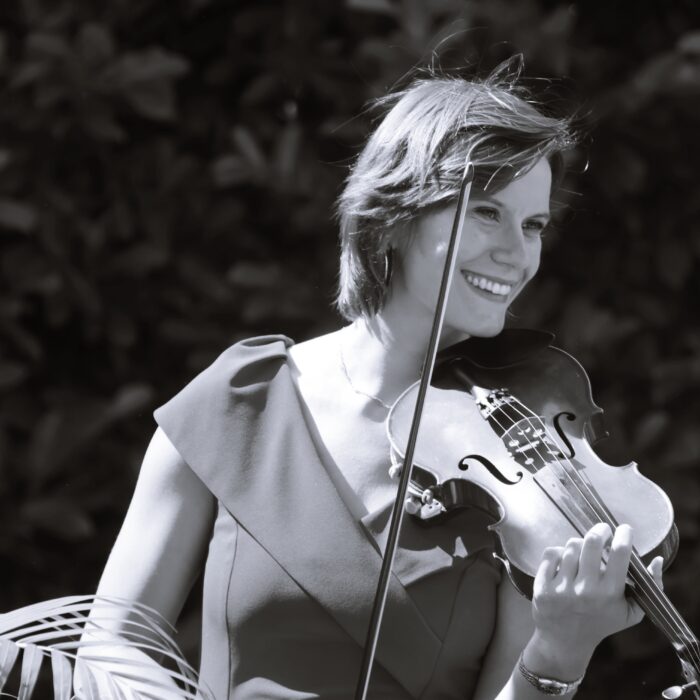
One in a Million: Soprano Vuvu Mpofu’s Fascinating Story of Opera Success
By Chris Ruel(Credit: Gerard Collett)
On the eastern side of the Cape of Good Hope, at the very tip of South Africa, sits Port Elizabeth, a city with a population just shy of one million people. The population size matters because it makes soprano Vuvu Mpofu one in a million, a ratio perhaps not unlike the shot she had at making it to the world’s greatest stages.
Fifteen years after watching opera on DVDs and mimicking their technique, Mpofu’s name is on the rise, winning the John Christie Award at the Glyndebourne Festival, and becoming a prizewinner at the Operalia Competition and the Hans Gabor Singing Competition.
As the Coronavirus has shuttered opera houses around the globe, Mpofu’s European engagements at Oper Köln (“Il viaggio a Reims) and at Bayerische Staatsoper (“Parsifal”) have unfortunately been canceled; however, she does have three US-based performances scheduled this coming summer and into 2021.
In August, she will sing Pamina at the Aspen Music Festival and School’s production of “Die Zauberflöte;” Adina—a role debut—in “L’elisir d’amore’s” at the Seattle Opera in October; and, Gilda in the Washington National Opera’s production of “Rigoletto,” during February and March of next year.
While in Aspen, Mpofu will be part of an inaugural group of artists selected to participate in the Renée Fleming Artists, part of the Aspen Opera Theater and VocalARTS program. Fleming serves as co-artistic director alongside Patrick Summers.
Not a bad start for a singer who is only 30-years-old and who hadn’t heard opera before she was a teenager.
A Family That Loved to Sing
While opera was not at the forefront of her musical experiences early on, Mpofu did engage music. In her formative years, her father and her grandmother, both lovers of music, encouraged her to sing in the church choir, where she often performed solos.
“I come from a family that loves to sing—at family gatherings or ceremonies—my family is known for singing,” Mpofu told OperaWire in a recent interview. “Grandma was the principal at my school, so I sang in the choir during primary school. I didn’t have any choice. When your grandma is the principal, you have to do most of the activities.”
But when her father passed away, she went to live with her mother. And then opera came along. Mpofu was but 15-years-old.
“There was this girl who was singing an aria. It was in a foreign language, and the music that was being played on the piano was something different. I loved the melody,” she narrated about an experience hearing a young girl in a choral competition. “I didn’t understand what she was singing about which made it more interesting to me. I asked my teacher what it was and she explained that it was opera.”
Ever curious, Mpofu went to the library and looked up every last thing she could about this “opera thing.” Then she went back to her teacher and told her she wanted to enter the choral competition the next year and sing some of the solos.
“The year I entered they were singing Pamina, ‘Ach, ich fühl’s.’ I had friends who knew more about opera and they had DVDs, and so, I borrowed one—The Magic Flute’ DVD, and they also gave me the ‘La traviata’ DVD. I put in the ‘La traviata’ DVD first and it just blew me away!”
The DVD, featuring Angela Gheorghiu and Leo Nucci, had a tremendous impact on Mpofu. She spoke of how she cried, describing how the performance was magical. Thrilled, she watched “The Magic Flute,” and began her training by watching how the singers pronounced the words.
Soon, her teacher gave her a copy of the score, and she learned the music. Though she didn’t win the competition the first time, the following year she did, and she made it to the national finals. Amidst stronger competition, Mpofu shined, winning second place.
“I thought, Oh! Okay, I actually have something here. I was about to graduate high school and we were given application forms for the universities. In my mind, all I could think about was music. I didn’t know if I could actually study music, but a friend of mine told me they offered opera at the University of Cape Town.”

(Image Source: OWL Arts Management)
Finding Mother’s Approval & Opening New Doors
When Mpofu told her mother what she wanted to do with her life, it didn’t go over well.
“My Mom was not up for that. She would ask me questions like: What if you wake up and your voice is gone? Then what will you do,” Mpofu revealed.
At that point in time, Mpofu’s mother had no idea what her talent was in this unique and strange artform. So she invited her to another competition and her mother went. She then understood and Mpofu had her essential backing.
But then another major obstacle appeared on the horizon.
“Everyone in my family was against my going and studying music. Other people back home didn’t understand. Opera was foreign to them,” she added. “It was expected that I do something like medicine, something that would eventually bring you money so that you can also support the family.”
But none of that ultimately mattered.
“My mom saw how passionate I was about music. She was so proud of me and told me I had her support.”
Mpofu applied to UCT. She was called to audition on her birthday and sang “Ach, ich fühl’s.”
Afterward, the man who became Mpofu’s voice trainer reached out to her mom, reassuring her, telling her he saw potential and would make sure she did well.
It wasn’t until Mpofu attended UCT that she experienced live opera as an audience member. Watching her fellow opera students perform “La bohème,” she recalls it being a jaw-dropping experience.
“I remember just watching and thinking how privileged I was to be part of music and listening to people sing live. These people don’t even have microphones! The voices just projected, people were acting, showing all the different emotions; it was just all there. I remember going back home and thinking wow! It made me realize my decision to study music was worth it. I wanted to be on that stage one day, singing for people and sharing what I have inside with them.”
Though innately talented, Mpofu had little formal understanding of music and the learning curve was steep. She noted that among her greatest struggles were aural training and music theory. But fortunately, she managed to overcome these hurdles with the support of friends that she made in the early going.
“I made friends and had kind of a support group, studying together, and supporting each other during the difficult times.”
But then she lost the greatest support she had. While at UCT, her mother passed away.
“She was the number one person I always relied on and who gave me advice through everything. When my mom passed, I didn’t know what to do.
“It was music that got me through. I had to stay positive and stay in the game because I had my little brothers to take care of—as well as the rest of the family. So, it was not just about me; I had them, too.”

(Image Source: OWL Artist Management)
Discovering Her Own Voice
Mpofu had to find her own voice, her own sound as an artist, something she explained came at a later stage, mostly due to self-doubt.
“I’ve always had those questions like: Am I good enough? Do I sound okay? My voice trainer at the time made me bring a tape and record my signing during lessons. I’d go back home and listen and try to learn more about what I did,” she noted.
These tapes would prove useful in helping her chart her progress. Over time, tapes that once sounded “terrible” would allow her perspective on how much she had grown.
“It actually gave me hope that I was going in the right direction and that I should trust myself. My voice was developing,” she added before noting that a major turning point for her was a university production of a major Verdi classic. “For me, when I did ‘Traviata’ with the university as Violetta—my first big role—I challenged myself more. I was able to connect with myself, my voice, and who I was as an artist.
“I sat down and thought about what can I bring as Vuvu to this character? So, it was ‘Traviata’ that really helped me find my inner voice.”
But things wouldn’t get any easier.
The day before she was set to do her preliminary round for the Belvedere Competition in South Africa, Mpofu had a violent encounter when she was mugged at knifepoint.
“I stay in a country with a lot of crime. You never think it might happen, but you know someday it will; you’re never safe. When it happened, my mind was not thinking, it was not registering.”
Mpofu was lucky, she was left physically unharmed but terribly shaken by the experience.
“It was when I got home that I cried. I heard someone had actually been stabbed the day before at the same place. I was crying because I was alive, that nothing had happened.”
It could have hindered her ability to sing the next day. But having her own voice helped her through the traumatic experience.
“Once I got singing, it was therapy for me, a soothing remedy. I was okay because I had music.”
And she will always have it, now and into the future.
The horizon is exciting for the soprano. She is set to make her U.S. debut and work with Renée Fleming this summer. While her repertoire is quite broad, she has maintained an affinity for the roles she first took on as a singer—Pamina and Gilda.
And Mpofu is also thrilled about her role debut as Adina in “L’elisir d’amore,” at Seattle Opera. The Donizetti piece holds a special place in her heart as it was the first show she performed at UCT, appearing as a chorus member just a decade ago.
Pamina, Gilda, Adina; these are dream roles for many singers, and Mpofu will have sung them all by the age of 30. What role is she setting her eyes on next? One is “Traviata’s” Violetta on an international stage, the other is Lucia.
“Lucia is the dream role, but I am scared of it… like crazy scared! My teacher and my agent have been saying I should start learning Lucia. Inside, I’m like; oh, my word because that’s one role I’m very afraid of, but I love to challenge myself. This year will be the year I learn it.”



